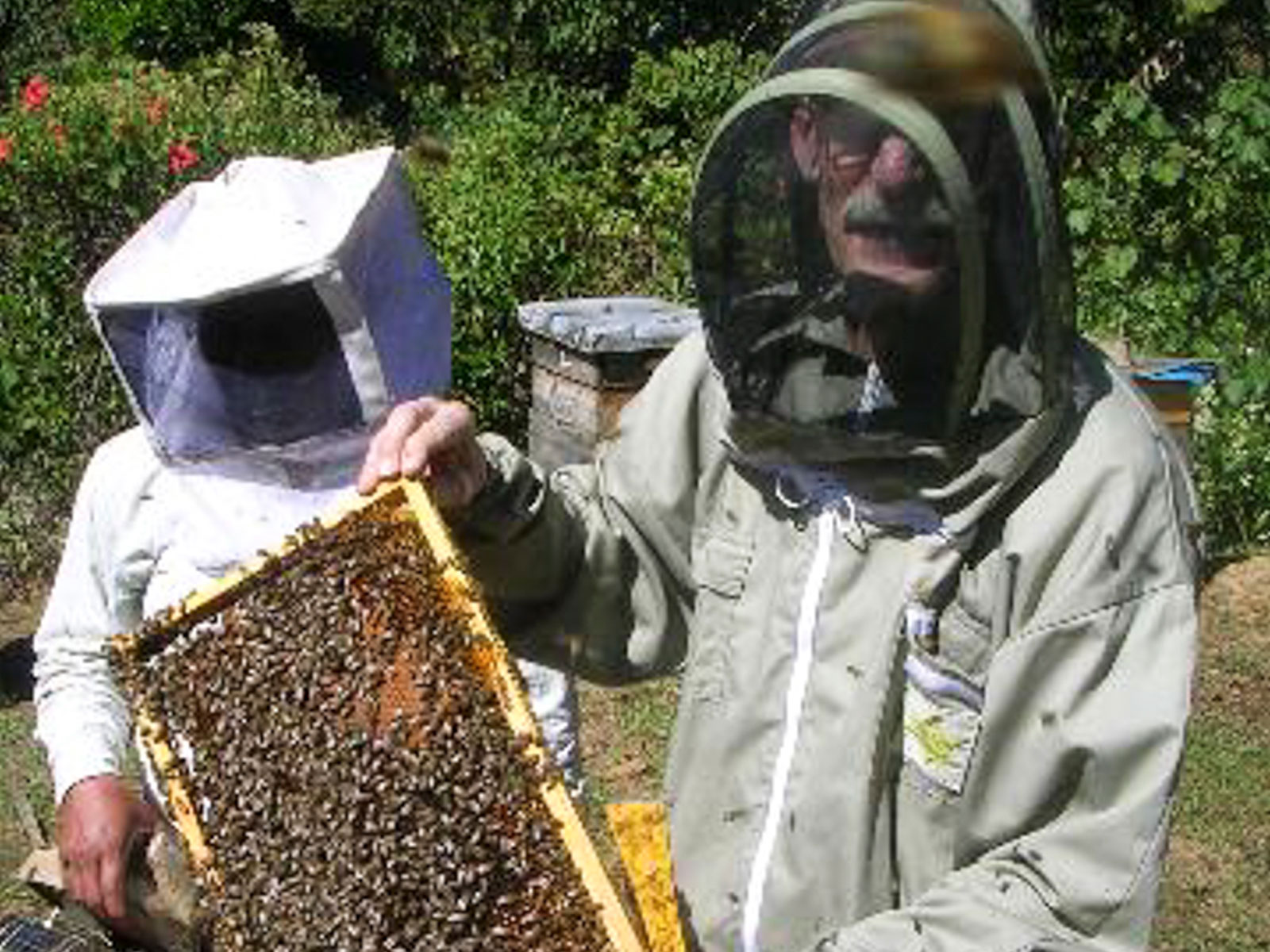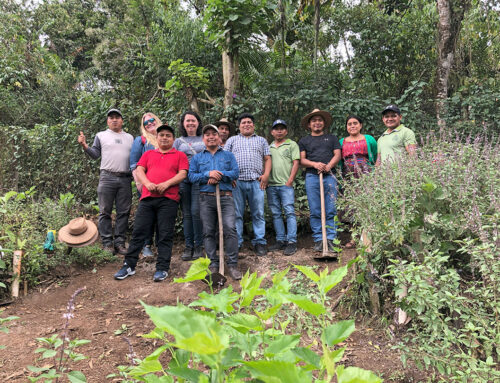I’d like to give a little history on our Café y Miel project. It began seven years ago with a sobering discovery by Rick Peyser of Green Mountain Coffee while on a trip to the origins of coffee production in Central America. He learned that even when coffee farmers were selling Fair Trade and organic-certified coffee, they could not earn enough in a year to feed their families. This period of 3-6 months was called ‘los meses flacos’, or the “thin months. This is wrong.
Since then Rick has devoted himself to changing this situation, and founded Food 4 Farmers to identify ways coffee farmers can develop supplemental sources of income. Our beekeeping project is one of those ways. What makes beekeeping so attractive is that it’s a livelihood-strengthening strategy going back to pre-Colombian times — an indigenous craft.
Coffee farmers are already keeping bees. Now, despite the total Africanization of bees in Central America, honey bee numbers and honey bee production have climbed to levels not seen since the 1980’s — before the arrival of these aggressive bees. Beekeepers have adapted to these bees because they know there is income in honey.
At Food 4 Farmers, we’re working hard to transfer some of that beekeeping knowledge to many more coffee farmers. Fortunately, we’ve found coffee cooperatives already raising bees, and they’re providing us with successful case studies to share. Our principal focus is to help cooperatives assess their situation to determine if beekeeping can have a positive impact and improve livelihoods for farmers.

F4F Board member and bee-visionary, Bill Mares




